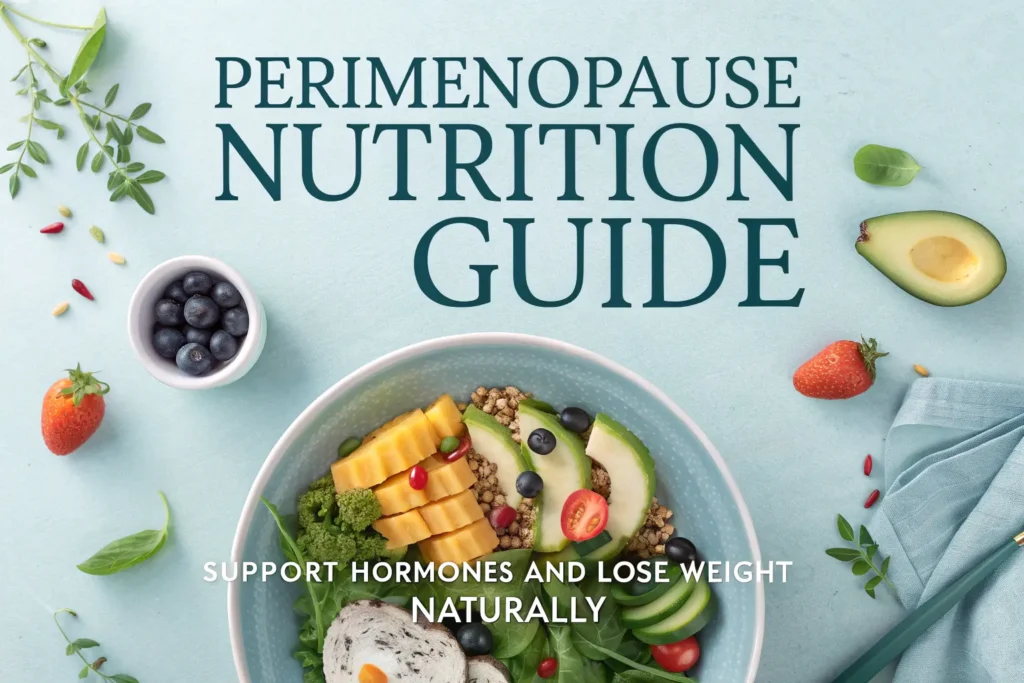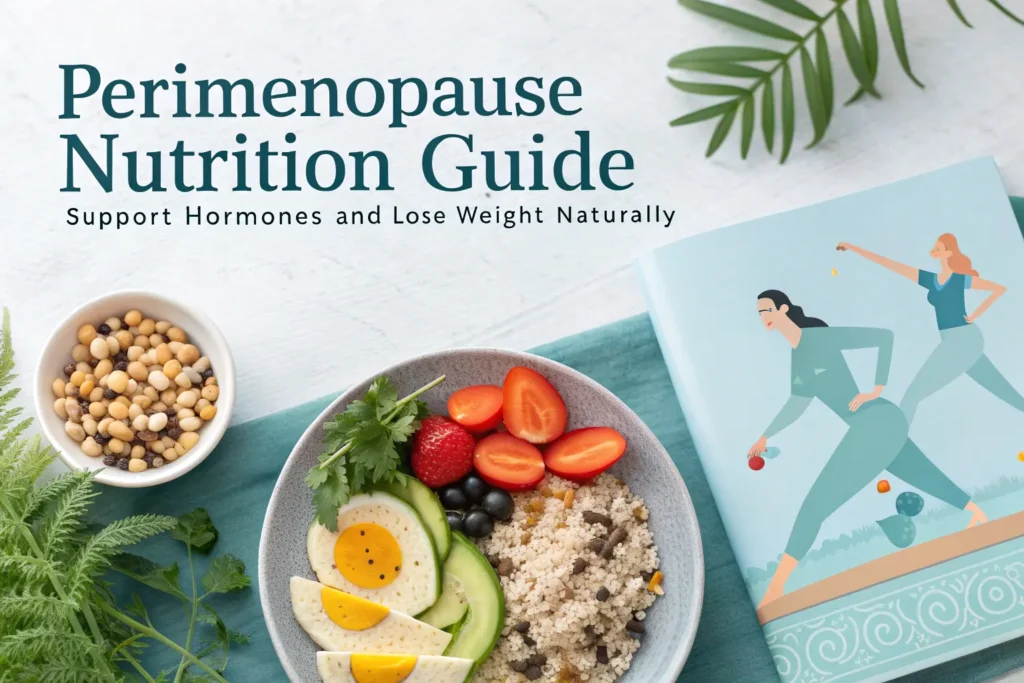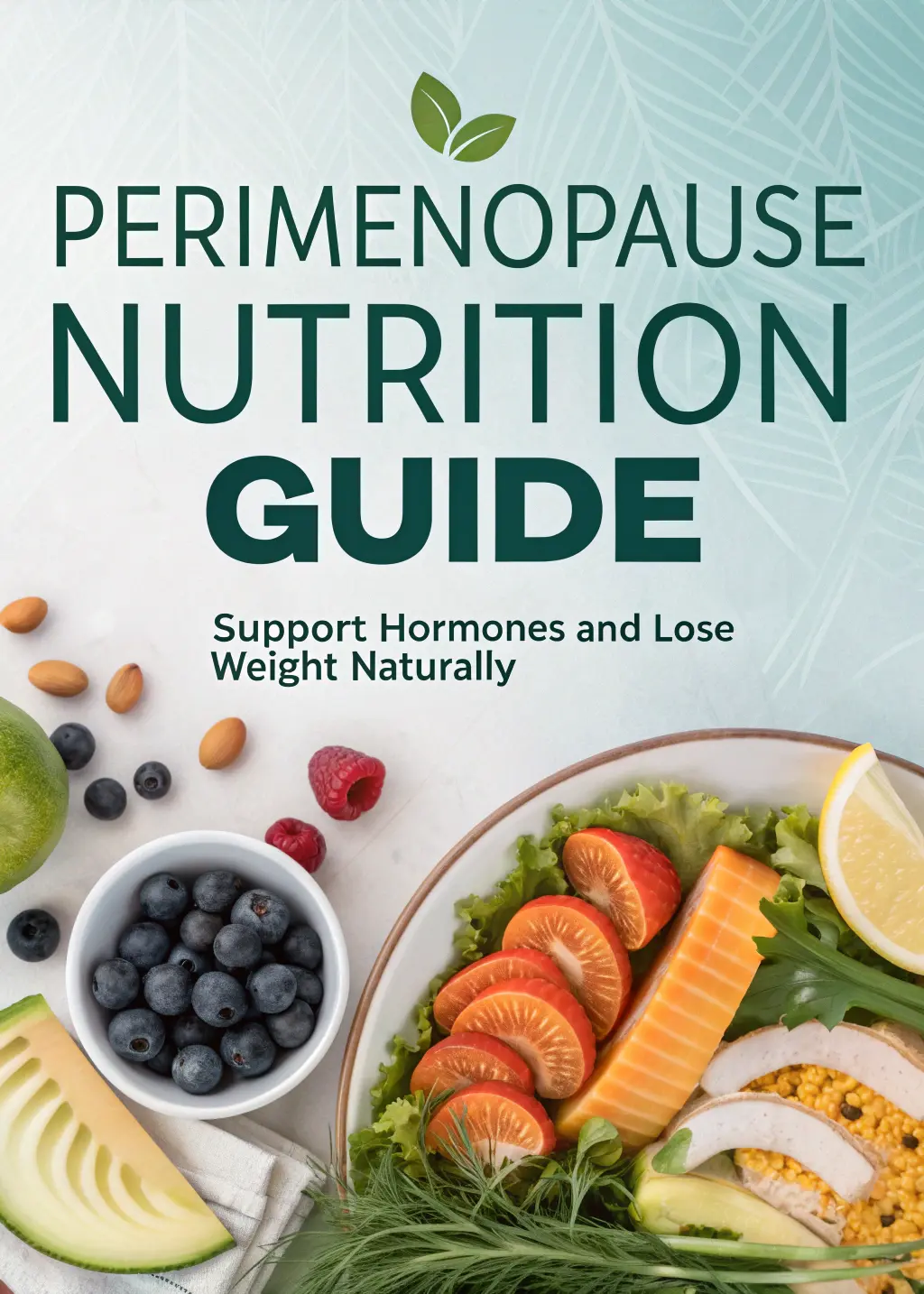Perimenopause can feel like your body is speaking a completely different language. One day you’re energized and clear-headed, the next you’re battling brain fog, mood swings, and stubborn weight gain that seems to appear overnight. If you’re experiencing these changes, you’re not alone—and more importantly, the right nutrition approach can make a significant difference.
Table of Contents
Understanding Perimenopause and Your Changing Body
Perimenopause typically begins in your 40s, though it can start earlier or later. During this transition, your estrogen and progesterone levels fluctuate dramatically before eventually declining. These hormonal shifts affect everything from your metabolism and appetite to how your body stores fat and processes nutrients.
The average woman gains 1-2 pounds per year during perimenopause, with much of this weight settling around the midsection. This isn’t just about vanity—abdominal weight gain during this time is linked to increased risks for heart disease, diabetes, and other health concerns.

Key Nutritional Strategies for Hormone Support
1. Prioritize Protein at Every Meal
Protein becomes even more crucial during perimenopause. Aim for 25-30 grams of high-quality protein at each meal to help:
- Maintain muscle mass, which naturally declines with age
- Support stable blood sugar levels
- Increase satiety and reduce cravings
- Support the production of hormones and neurotransmitters
Best protein sources include: wild-caught fish, grass-fed beef, free-range poultry, eggs, legumes, Greek yogurt, and plant-based options like hemp seeds and quinoa.
2. Embrace Healthy Fats
Your body needs healthy fats to produce hormones effectively. Include omega-3 fatty acids, which help reduce inflammation and support brain health during this transition.
Include these fats daily:
- Avocados and olive oil
- Nuts and seeds (especially flaxseeds and chia seeds)
- Fatty fish like salmon, sardines, and mackerel
- Coconut oil for cooking at higher temperatures
3. Focus on Fiber-Rich Foods
Fiber helps your body eliminate excess hormones and supports healthy digestion. Aim for 25-35 grams of fiber daily from whole food sources.
Fiber powerhouses include: vegetables, fruits, beans, lentils, and whole grains like quinoa and brown rice.
Foods That Support Hormonal Balance
Phytoestrogen-Rich Foods
These plant compounds can help balance estrogen levels naturally:
- Flaxseeds: Add ground flaxseeds to smoothies or oatmeal
- Soy products: Choose fermented options like tempeh and miso
- Legumes: Incorporate lentils, chickpeas, and black beans regularly
Cruciferous Vegetables
These vegetables support liver detoxification and help metabolize hormones:
- Broccoli, cauliflower, and Brussels sprouts
- Kale, collard greens, and cabbage
- Arugula and watercress
Antioxidant-Rich Foods
Combat oxidative stress and inflammation with colorful foods:
- Berries (blueberries, raspberries, blackberries)
- Dark leafy greens
- Green tea
- Turmeric and ginger
Weight Management During Perimenopause
Timing Your Meals
Consider these meal timing strategies:
- Don’t skip breakfast: Start your day with protein and healthy fats
- Eat regularly: Aim for meals every 3-4 hours to maintain stable blood sugar
- Consider intermittent fasting: Some women find a 12-16 hour eating window helpful, but listen to your body
Carbohydrate Considerations
You don’t need to eliminate carbs, but choosing the right types and timing can help:
- Focus on complex carbohydrates like sweet potatoes, quinoa, and oats
- Pair carbs with protein and fat to slow digestion
- Consider having most of your carbs earlier in the day
Hydration Matters
Proper hydration supports metabolism and can help with bloating and water retention. Aim for half your body weight in ounces of water daily, plus extra during exercise or hot weather.
Foods to Limit or Avoid
Processed Foods and Added Sugars
These can worsen hormonal imbalances and contribute to weight gain:
- Packaged snacks and processed meals
- Sugary drinks and desserts
- Refined grains like white bread and pasta
Excess Caffeine and Alcohol
Both can disrupt sleep and hormone production:
- Limit caffeine to morning hours
- Keep alcohol to 1-2 drinks per week, if any
- Consider herbal teas like chamomile or passionflower for evening relaxation

Sample Daily Meal Plan
Breakfast: Vegetable omelet with avocado and berries Snack: Greek yogurt with ground flaxseed and nuts Lunch: Lentil and kale salad with olive oil dressing Snack: Apple with almond butter Dinner: Baked salmon with roasted vegetables and quinoa
Supplements to Consider
While whole foods should be your primary focus, these supplements may provide additional support:
- Omega-3 fatty acids: If you don’t eat fish regularly
- Vitamin D: Most women are deficient, especially important for bone health
- Magnesium: Supports sleep and muscle function
- B vitamins: Support energy production and nervous system health
Always consult with a healthcare provider before starting new supplements.
Lifestyle Factors That Matter
Nutrition is just one piece of the puzzle. These lifestyle factors also support hormonal health:
- Regular exercise: Combine strength training with cardio
- Stress management: Practice meditation, yoga, or deep breathing
- Quality sleep: Aim for 7-9 hours nightly
- Social connections: Maintain relationships and seek support
Creating Sustainable Changes
Remember that sustainable change happens gradually. Start by:
- Adding one new healthy habit each week
- Focusing on progress, not perfection
- Listening to your body’s unique needs
- Seeking support from healthcare providers or nutrition professionals
Final Thoughts
Perimenopause is a natural transition, not a disease to be feared. With the right nutritional approach, you can support your changing body, maintain a healthy weight, and feel energized throughout this phase of life. The key is consistency, patience, and self-compassion as you navigate these changes.
Your body is incredibly adaptable, and with proper nutrition and lifestyle support, you can thrive during perimenopause and beyond. Start with small, sustainable changes and remember that every positive step you take is an investment in your long-term health and wellbeing.





